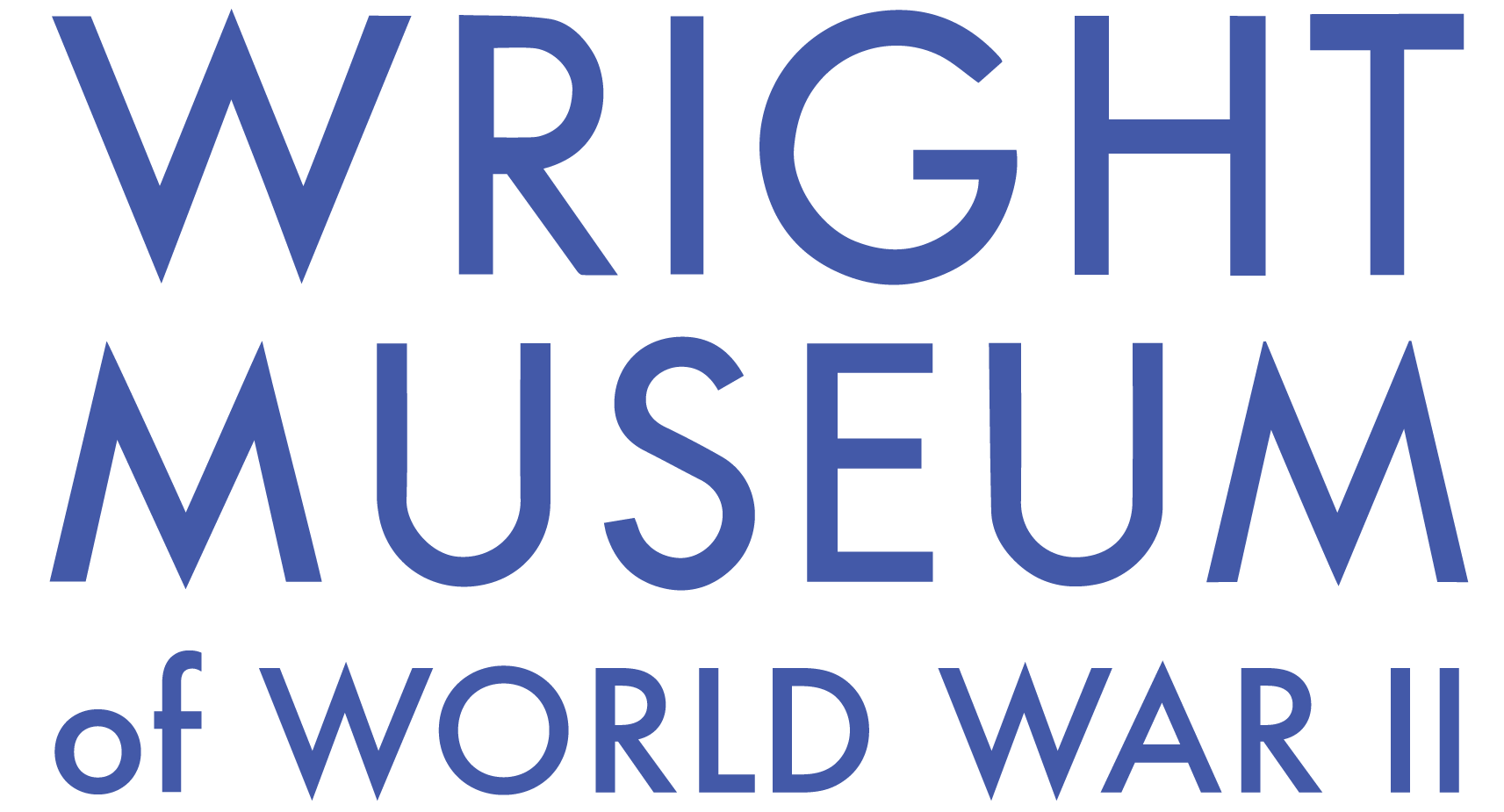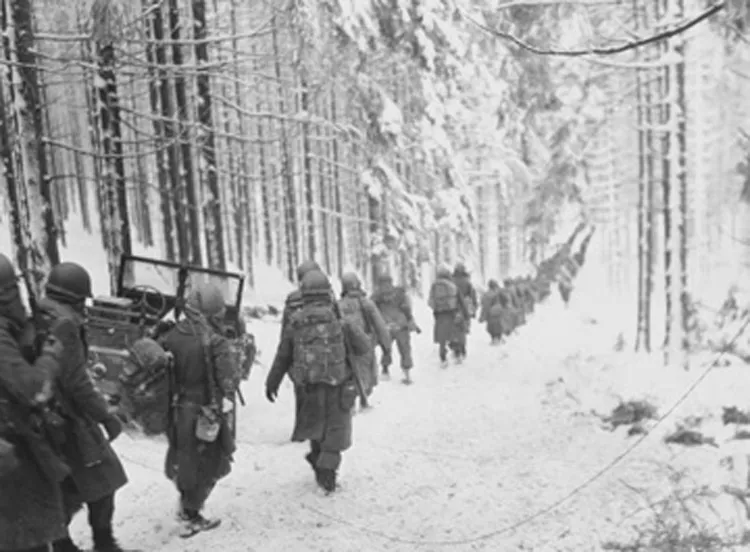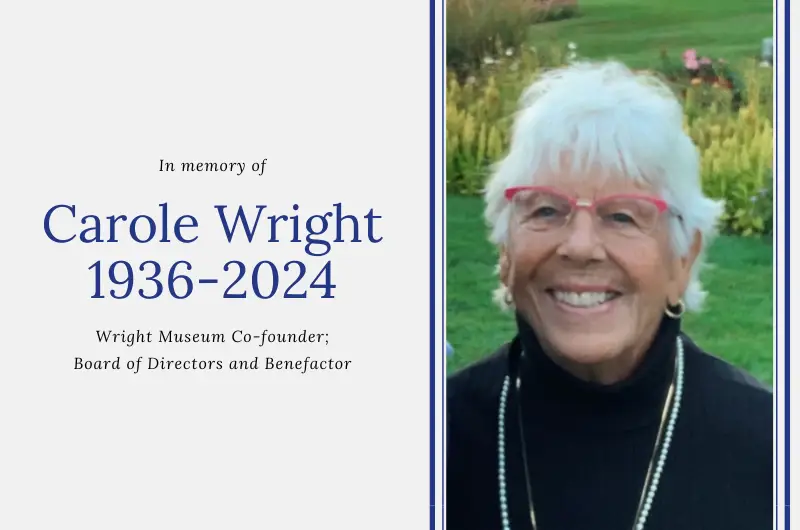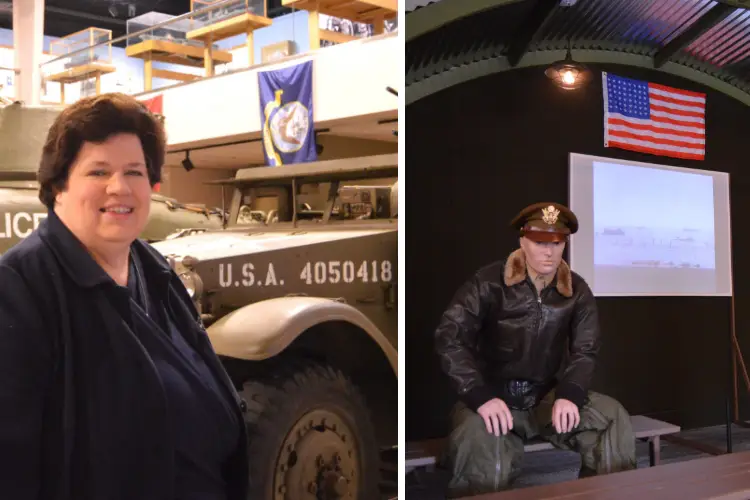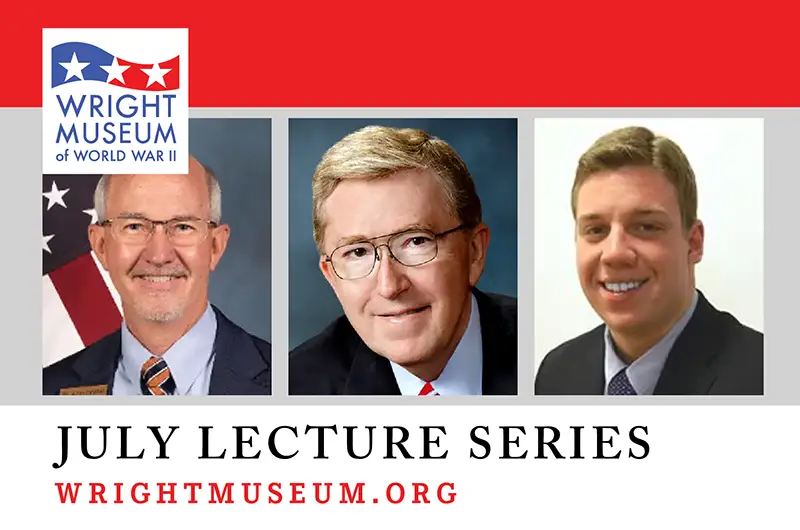On December 16th, 1944, Adolf Hitler launched a surprise attack against the Allied soldiers in Belgium’s dense Ardennes Forest in what became known as the Battle of the Bulge. The attack was Hitler’s desperate, last-ditch effort to win the war on the Western Front. The fighting was heavy and brutal.
At the same time, the brutal winter weather beginning on December 22nd—snow, blizzards, fog, and rain—made maneuvering on both sides difficult. Many American soldiers were still wearing the same summer uniforms they’d been wearing when they hit the beaches at Normandy six months earlier.
But despite the chaos of war, an example of goodwill and humanity would be found in the midst of battle.

During this time, twelve-year-old Fritz Vincken and his mother, Elizabeth, were staying in an old cabin, not far from the fighting. Fritz’s father had sent them there because Allied bombing had damaged their home back in Aachen, Germany. Unfortunately, he couldn’t join them at the cabin on Christmas Eve because of the recent bad snow storm.
In the early evening of December 24th, Elizabeth was making a meager dinner of chicken soup for their Christmas Eve meal when someone knocked on the cabin door. When she opened the door, Elizabeth found herself facing three American soldiers. One of them had sustained a gunshot wound to the leg. Elizabeth spoke no English and they spoke no German. Fortunately, she and one of the soldiers knew a little French and communicated using French, along with sign language.
The American told her they had become lost in the snow storm and that the wounded soldier was bleeding heavily. They also were hungry. Then he asked if they could come in from the cold and spend the night with them because he feared they would freeze to death if they slept outside. Whatever she decided, though, they would abide by her decision. Harboring an enemy soldier was illegal. If it were found out she had taken them in, she would be executed. But, because it was Christmas Eve, Elizabeth invited them into the cabin. She made the wounded soldier as comfortable as she could. Fritz was sent to fetch some potatoes and a rooster the family had been saving to make a Christmas dinner for the exhausted soldiers.
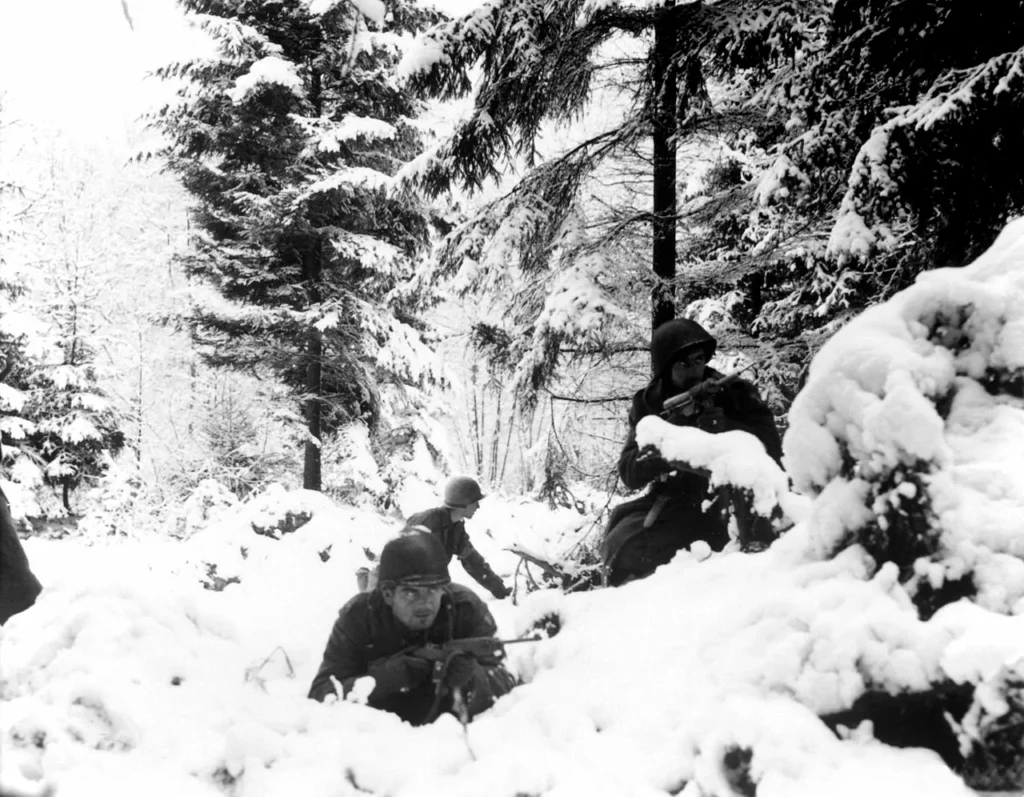
Not long after, another knock sounded on the door. Fritz opened the door—and found himself facing four German soldiers. One of the soldiers told him they had become separated from their unit, were starving, and feared they’d freeze to death during the night if they stayed outside.
Elizabeth went outside. Shutting the door behind her so the Americans couldn’t hear, she told the Germans that they could come in and eat, but warned them there were other visitors inside they may not like. One was wounded. “It is the Holy Night,” she told them, “and there will be no shooting here.” If they left their weapons outside, they could come in, eat, and spend the night.

The weary but cautious Germans agreed.
Elizabeth went back in and announced that four German soldiers were outside who needed food and a place to spend the night. The Germans, she said, wouldn’t try to take them prisoner. But the Americans had to give her their weapons as well.
The Americans complied, and the weapons were stashed in a shed outside the cabin. Then she let the Germans into the cabin.
The meeting was awkward at first, with the Americans sitting on one side of the room and the Germans on the other side. The thaw began when the Germans started singing Silent Night in Latin. The Americans joined in, singing in English.
The Germans shared the last of their food—a loaf of bread and some wine—with the Americans. With the tension between them relaxed, one of the Germans spoke in English. He was an ex-medical student, and went to examine the wounded American. With some tending, food, and rest, the American soldier would be able to heal.
By the time the Christmas Eve dinner was ready, the tension had largely subsided. Fritz later recalled that when his mother said grace before the meal, the soldiers from both sides teared up, just as she had – they were all away from home and weary from war. Over dinner, the members of the strange group even found themselves interacting as if old friends.
The truce lasted through the night, and the next morning, the Americans and Germans collected their weapons. One of the Germans brought out a map and compass and showed the Americans how to get back to their lines. A stretcher was fashioned for the injured American. And then, after shaking hands, the two groups parted ways, heading back to their respective lines.
The Rest of the Story
The Vincken family survived the war. Fritz grew up, married, and became an American citizen. He opened a bakery after settling in Honolulu, Hawaii. Yet he never forgot that special Christmas, and he yearned to meet the soldiers again.
Flash forward to 1995. Season 7, Episode 16 of the popular Unsolved Mysteries television program recreated the Christmas Eve meeting between the American and German soldiers. In a strange coincidence, a volunteer chaplain at a nursing home in Fredrick, Maryland, had watched the program. The story was similar to one that an elderly resident in poor health, named Ralph Blank, kept telling anyone who would listen. The chaplain contacted Unsolved Mysteries which, in turn, contacted Fritz in Hawaii. Fritz phoned Ralph, who said that he was one of the three Americans who had spent Christmas Eve with him. Fritz flew to Maryland in 1996 and was finally reunited with one of the soldiers he had met on that Christmas so many years prior.
Fritz later was able to find another one of the Americans, but never tracked down the third nor any of the Germans.
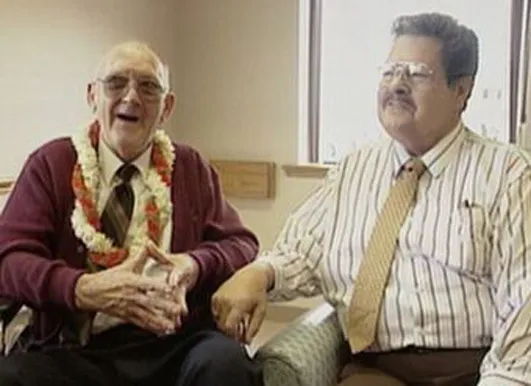
In an oral history interview with a local student in 1997, Fritz recalled: “Many years have gone since that bloodiest of all wars, but the memories of that night in the Ardennes never left me. The inner strength of a single woman, who, by her wits and intuition, prevented potential bloodshed, taught me the practical meaning of the words: ‘Goodwill Toward Mankind’.”
